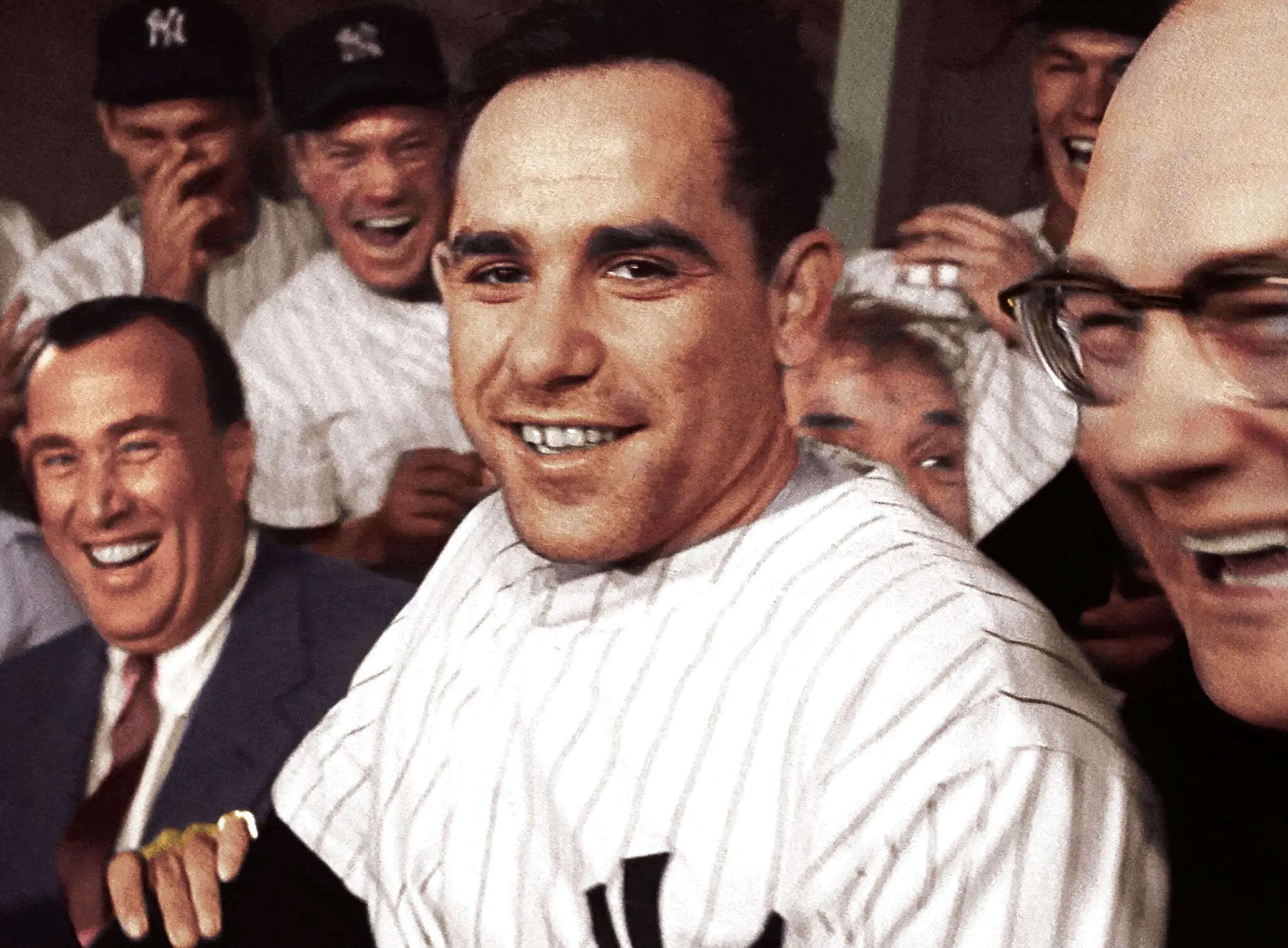
2 minute read
Yogic Wisdom A new documentary delves into the athletic feats and wisecracks of baseball legend Yogi Berra.
by Indy Week
BY GLENN MCDONALD arts@indyweek.com
Yankees great and baseball legend Yogi Berra holds a strange and specific place in American sports culture. Unlike his contemporaries in the game’s Hall of Fame pantheon, Berra isn’t celebrated for being a conquering hero or elite athlete. Instead, he’s remembered as a lovable little guy, a TV ad man, and the inventor of puzzling and occasionally profound sayings known as Yogi-isms.
The new documentary It Ain’t Over, dedicated to Berra’s overall legacy, has a bone to pick with this assessment. Because according to the numbers (baseball loves numbers), Berra was indeed an elite athlete. And according to pretty much everyone who ever knew him, he was a genuine hero, too.
Hardcore baseball fans will enjoy all the statistical details presented in the first part of this film, which make a persuasive case for Berra’s on-field greatness. But it’s the hero business that makes this movie worthwhile for anyone interested in American history and popular culture.
By all accounts, Berra really was one of the good guys. A working-class kid from St. Louis, he declined his initial baseball contract to enlist in the Navy during World War II. He earned a Purple Heart during the invasion of Normandy but never filed the paperwork because he didn’t want to worry his mother.
In 1947, Berra was one of the few white ballplayers who went out of their way to welcome Jackie Robinson to the major leagues. Late in his career, he signed on to support LGBT equality in sports. Berra stayed happily married to his high school sweetheart Carmen for 65 years, mentored young players, and treated everyone with respect.
“He was just a gentle, kind soul,” Yankees lifer Don Mattingly says. “That’s why he was so loved.”
With hagiographic salutes like this film, it’s typical to pack the frame with people saying nice things about the subject. But you can’t fake the genuine affection shown here by dozens of baseball insiders and celebrity fans: Derek Jeter, Billy Crystal, Vin Scully, Mariano Rivera, Willie Randolph, and Suzyn Waldman. Even President Obama makes an appearance in a bit of archival footage.
It’s heartwarming all right, but the most intriguing parts of this documentary explore the weird and wonderful phenomenon of Yogi-isms. The film’s title is based on Berra’s most famous saying—“It ain’t over till it’s over”—which, according to the film, he may not have actually said. It seems that many of the folksy malapropisms now ascribed to Berra were misattributed or penned by copywriters during Berra’s post-baseball career in TV commercials.
That’s a little depressing, but plenty of the more famous Yogi-isms have been fully vetted, and they’re the best ones, anyway. For example, there’s Yogi’s famous counsel about dining out: “Nobody goes to that restaurant anymore, it’s too crowded.”
This is an ideal Yogi-ism. It doesn’t make sense and it makes perfect sense at the same time. Poets spend years chasing a maneuver like this. Baseball guru Bob Costas, holding forth in his usual slightly aggravating way, busts out another classic: “Always go to other people’s funerals. Otherwise, they won’t go to yours.” My personal favorite: “When you come to a fork in the road, take it.” You can’t argue with genius like this. It’s American Zen.
On the structural level, director Sean Mullin doesn’t break any new ground. The doc has the usual mix of archival footage with talking head interviews and makes no attempt to illuminate any darkness around its exalted subject. (We learn that Berra had a slight temper, maybe.)
But that’s fine: this film is a celebration, not an investigation. It does what it sets out to do, providing context and insight into one of the great characters in American sports history. “You should never meet your heroes,” the saying goes. But with Yogi Berra, you’re perfectly safe. W











